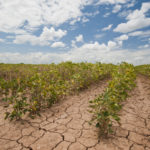 When businesses talk about climate change, it’s often framed as something that is a cost of doing business, with the various taxes and regulations on energy usage, pollution, and so on holding them back. Research from the University of California, Davis highlights that untrammeled climate change also has a considerable commercial impact on companies.
When businesses talk about climate change, it’s often framed as something that is a cost of doing business, with the various taxes and regulations on energy usage, pollution, and so on holding them back. Research from the University of California, Davis highlights that untrammeled climate change also has a considerable commercial impact on companies.
The researchers set out to determine the costs and benefits of climate change policy. They used an empirical approach to examine the consequences of rising global temperatures on GDP. The results show that persistent temperature shocks can limit economic growth in around 22% of countries.
“Our results suggest that many countries are likely experiencing persistent temperature effects,” the researchers explain. “This contrasts with models that calculate metrics like the social cost of carbon, which mostly assume temporary temperature impacts on GDP. Our research adds to the evidence suggesting that impacts are far more uncertain and potentially larger than previously thought.”
The study builds on previous research that explored the question via estimations of temperature changes on GDP, with somewhat inconclusive results. To try and isolate the impact of persistent temperature changes, the researchers used a novel method of analyzing lower modes of oscillation in the climate system.
Climate impact
For instance, the Southern Oscillation of El Niño consists of a 3-7 year fluctuation in temperature in the Pacific Ocean, which significantly affects both temperature and rainfall around the world.
“By looking at the GDP effects of these types of lower-frequency oscillations, we’re able to distinguish whether countries are experiencing temporary or persistent and cumulative effects,” the authors explain.
While the researchers accept that their study is not a conclusive assessment of the impact of climate change on companies, they nonetheless believe that it makes a valuable contribution to the discussion.
“Data availability and the current magnitude of climate impacts limit what can be done globally at the country level,” they conclude. “However, our research constitutes a new piece of evidence in this puzzle and provides a novel tool to answer this still unresolved question.”